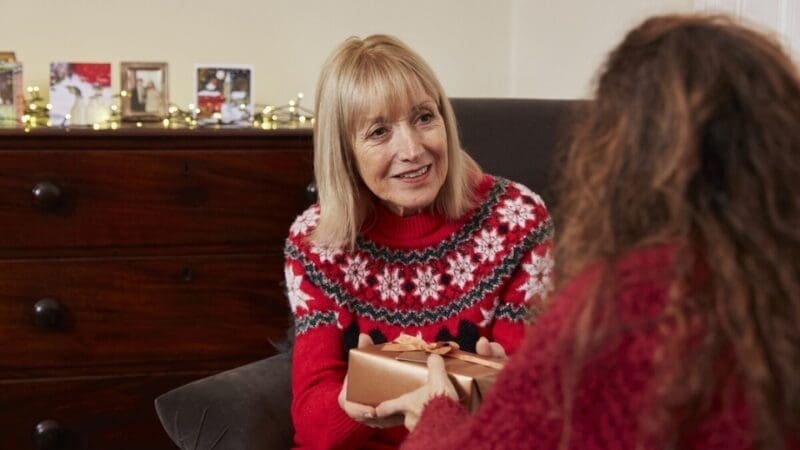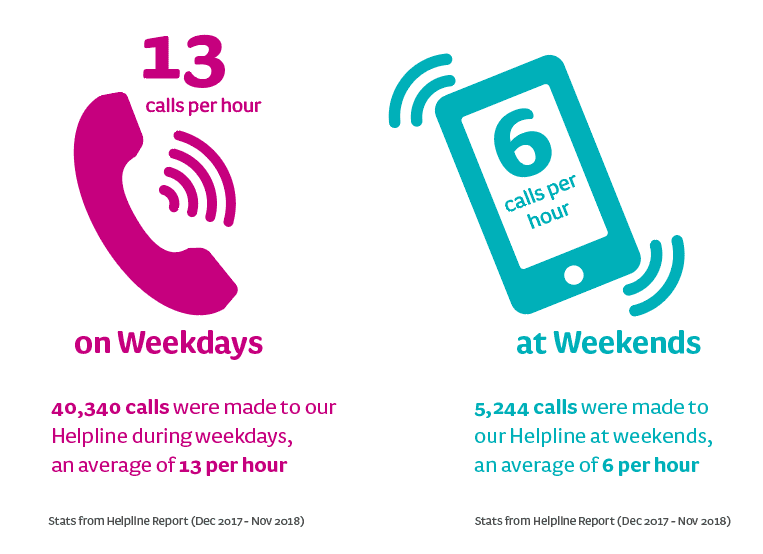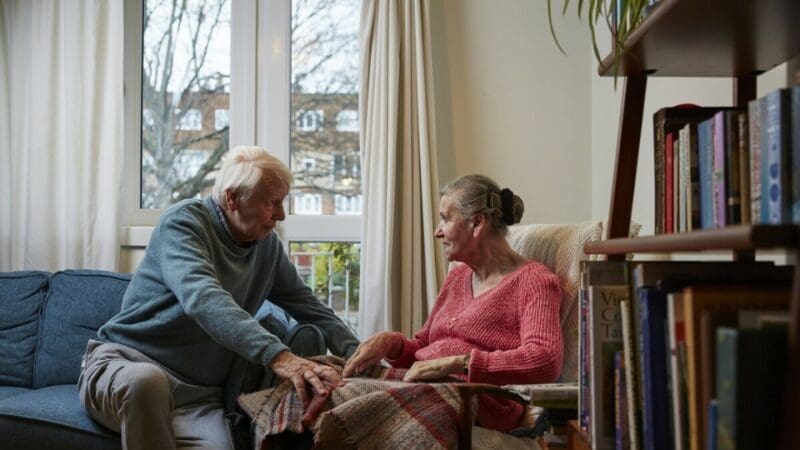
Christmas gifts for people with dementia
Our dementia specialist Admiral Nurses have put together suggestions for appropriate Christmas gifts for people with dementia
Caroline Woodcock, Admiral Nurse on the Dementia Helpline, shares how we evaluate our Helpline, so we can measure the support for families and make improvements for the future.
The Admiral Nurse Helpline offers support from specialist dementia nurses like myself, to people who are caring for someone living with dementia, including family, friends and professionals, as well as those living with dementia themselves. We have compiled an annual report giving figures on how many people have contacted us, as well as feedback from carers, covering the period from December 2017-November 2018.
The Helpline is open seven days a week, Monday-Friday 9am-9pm and Saturday-Sunday 9am-5pm. People can contact the Helpline either by phone or email.
There were 45,584 calls made to the Helpline: 40,340 of these were made on weekdays and 5,244 at weekends. When comparing data from the previous year, this is an increase of 25% in calls.
Information taken from our database shows that 17,016 cases were recorded – an increase of 38% on the previous year. Of these cases, 29% were people who had contacted us on the Helpline previously. This shows that a large number of people contact our Helpline more than once. Information given to us by people calling the Helpline is given by choice and people can remain as anonymous as they wish.
Our figures show that 60% of the people contacting us are female, and 67% of people contacting the Helpline were the son or daughter of a person with dementia. It is also recorded that 25% of the people we are being contacted about have vascular dementia and 23% have Alzheimer’s disease. We received contacts regarding 125 people who were recorded as having young onset dementia – dementia diagnosed when the person is under 65 years old – and 12% of the contacts were about people who did not have a formal diagnosis.
We have 31 categories of reason that we are able to record, for people contacting the Helpline. The most common are ‘Wanting an Admiral Nurse’ (4475 people requested this), 3918 people asked for ‘General information’ about dementia, and 3886 were recorded as ‘Accessing support’.
As well as recording who contacts the Helpline and why, we are also able to record the location of the person. There were 17,010 contacts where the location was recorded, 16,807 being from people living in the UK and 203 from 29 other countries, including Australia, USA and Virgin Islands and Spain. We also recorded the county for contacts within the UK, the most common being London, followed by Kent, West Midlands and West Yorkshire.

Most people contacted us by telephone (72%), with 25% emailing and 2% using the contact form on the Dementia UK website. There were 14,579 contacts from carers, 1183 from professionals, 752 from other relatives or friends who do not identify themselves as carers. There were also 502 contacts from people living with dementia.
The second part of the report looked at information gathered from a Carers Experience Survey. 63% of the people who completed the survey said that their call was answered immediately and 78% of the people who left a messaged stated that their call was returned within 12 hours. People were asked how helpful we were at providing certain things: 100% of people stated that we were helpful in sharing information and explaining the impact of dementia. Well over 90% of people felt we were helpful in responding to changes in behaviour and providing emotional support. People described us as helpful, understanding, knowledgeable and good at listening. 96% of people were extremely likely or likely to recommend the Helpline to others. Following contact with the Helpline we are able to offer a follow-up email or letter along with leaflets: 99% of people who received these said they found this helpful.
The results of the survey also show that over 90% of people said that their contact with the Helpline has made a positive difference to their ability to take better care of the person they look after as well as their ability to make important decisions about them. There were many positive comments regarding the support we have been able to provide. People were asked what they would have done without the support of an Admiral Nurse: 59% stated they would have struggled on their own, with 19% stating they would gone to the GP for support.
People were asked why they thought our Helpline is different from other sources of support. The three main attributes were: Specialist dementia knowledge, Ability to listen and Empathy, compassion and understanding. We also asked people how they felt the Helpline could be improved, suggestions include: A greater publicity of the Helpline, discreet packaging of letters and more nurses so that calls are answered more quickly.
In conclusion, the report shows that during the period from December 2017-November 2018 there was an increasing demand for the Admiral Nurse Dementia Helpline service, and the feedback from people contacting us demonstrates the positive difference we have made.

Our dementia specialist Admiral Nurses have put together suggestions for appropriate Christmas gifts for people with dementia

Christmas activity ideas for a person with dementia for a fun and engaging time for all the family

Consultant Admiral Nurse for Frailty, Kerry Lyons, answers your questions about delirium, falls and incontinence.